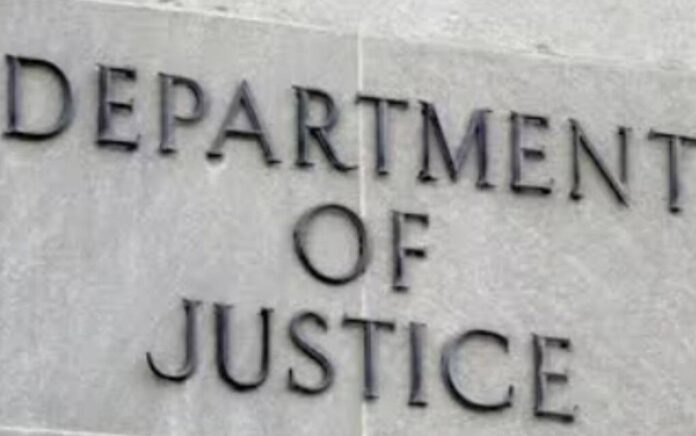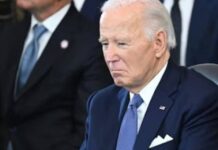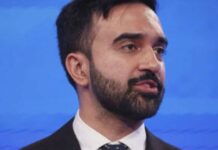
America has a mental health crisis. And it may be all the fault of the woke left.
And now the Justice Department mulled over revoking gun ownership for this group of people.
DOJ’s Deliberations: A Response to Rising Concerns
Recent reports reveal that senior officials at the U.S. Department of Justice (DOJ), under Attorney General Pam Bondi, have been holding discussions to explore a potential federal ban on transgender individuals owning firearms. Multiple sources, including a DOJ insider, confirmed to Breitbart News that the Office of Legal Counsel (OLC), which provides legal guidance to the Attorney General, has convened several meetings following a tragic shooting at a Minneapolis Catholic school. The incident, allegedly perpetrated by a transgender individual, resulted in the deaths of two children and injuries to 21 others, prompting renewed scrutiny of gun ownership policies.
Linking Gender Dysphoria to Public Safety
The DOJ’s discussions center on whether individuals diagnosed with gender dysphoria, classified as a mental disorder in the American Psychiatric Association’s Diagnostic and Statistical Manual of Mental Disorders (DSM), should be barred from owning firearms due to potential mental instability.
This consideration stems from a federal law that prohibits those “adjudicated as a mental defective” from possessing guns. Conservative figures, such as Turning Point USA’s Charlie Kirk, have endorsed this approach, arguing it aligns with calls for “common sense gun laws,” a phrase often used by Democrats.
A DOJ source told Breitbart News, “Democrats have called for common sense gun laws for a long time – this seems pretty common sense to me.” The talks reflect a broader effort to address perceived risks associated with mental health challenges, particularly in light of high-profile violent incidents linked to transgender individuals.
Political and Emotional Fallout: A Call for Action
The Minneapolis shooting has intensified political debates, with Vice President JD Vance visiting affected families and survivors, contrasting with Minnesota Governor Tim Walz’s push for broader gun control measures.
Walz, who has positioned Minnesota as a “trans refuge,” faced criticism from Vance, who emphasized a bipartisan desire to prevent such tragedies, stating, “I’m not going to tell the Minnesota lawmakers or the governor exactly how they should respond to this tragedy. I think that…there’s a strong desire from across the political spectrum to do something so that these shootings are less common.”
While no final decision has been made, the DOJ’s proactive discussions signal a potential shift toward targeted restrictions, driven by concerns over public safety and mental health.
Why the Justice Department’s Approach Has Merit
The DOJ’s consideration of restricting firearm ownership for transgender individuals with gender dysphoria is grounded in a reasonable concern for public safety, particularly in the context of recent violent incidents.
The classification of gender dysphoria as a mental disorder in the DSM provides a legal basis for evaluating whether affected individuals may pose a risk when armed, especially given studies, like one from JAMA Network, noting that 63.7% of transgender and gender-diverse adults experience major depressive episodes at higher rates than the general population.
High-profile cases, such as the Minneapolis and Nashville shootings, where transgender individuals were involved, have fueled arguments that mental health challenges associated with gender dysphoria could contribute to instability, justifying preemptive measures. Federal law already restricts firearm ownership for those deemed mentally unfit, and the DOJ’s exploration aligns with existing legal frameworks aimed at preventing violence.
By focusing on mental health risks rather than blanket discrimination, the DOJ seeks to balance Second Amendment rights with the urgent need to protect communities, particularly schools, from further tragedies. While critics argue this risks overreach, the targeted approach reflects a pragmatic response to a pattern of concern, prioritizing the safety of vulnerable populations like children.



















